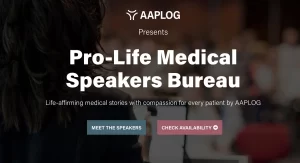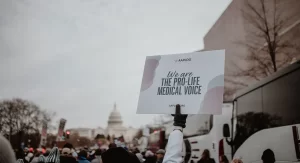In a ruling on a case brought by AAPLOG member organization and life-affirming medical clinic Bella Health and Wellness, a Colorado district court has struck down the state’s ban on abortion pill reversal (APR). The ruling permanently blocks a 2023 law that prohibited medical professionals from offering this treatment, which can often save a preborn baby’s life after a mother has taken the first abortion pill.
Abortion pill reversal uses progesterone to counteract the effects of mifepristone, stabilizing the pregnancy and giving mothers who regret beginning a drug-induced abortion a second chance to choose life. Over 6,000 babies have been born after their mothers obtained this lifesaving therapy. While abortion advocates attempted to deny women this option, the court affirmed that the state cannot silence medical professionals or force women to complete abortions they no longer want.
This ruling is deeply encouraging. It reaffirms both the freedom to practice evidence-based, life-affirming medicine and the dignity of women as capable decision-makers. Many women experience immediate regret after taking the first abortion pill (mifepristone). Denying them access to reversal care not only strips them of their autonomy but also robs their children of the chance to live.
The court acknowledged that while debates about APR’s efficacy continue, there is no evidence of harm to women and numerous documented cases of babies carried to term after treatment. This aligns with the clinical experience of many practitioners who have safely provided APR to grateful mothers.
Ultimately, this decision restores a vital option: the ability for women to reclaim their choice and for medical professionals to stand ready with care that protects both mother and child.
As the proportion of abortions in this country done through mifepristone followed by misoprostol increases, so will the number of women with abortion regret who desire this chance to save their child’s life. However, they may not have access to it if more physicians and midwives are not aware of this life-saving treatment. We discussed this exact situation with an APR patient on an episode of our “Caring for Both” podcast.
If you are not providing APR currently, we encourage you to sign up for the APR Network. If you have more questions about APR, AAPLOG has two very helpful videos for you. The first, found on our website, addresses the most common myths about APR. The second, part of our groundbreaking Med Ed series, is a CME video (0.75 cat 1 credit) that features one of the founders of APR and outlines the evidence behind it as well as highlights the patient experiences of two women with successful reversals.






